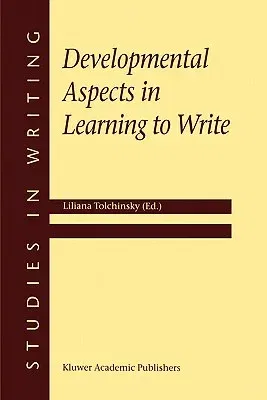Developmental Aspects in Learning to Write (Softcover Reprint of the Original 1st 2001)Paperback - Softcover Reprint of the Original 1st 2001, 31 July 2001

Qty
1
Turbo
Ships in 2 - 3 days
In Stock
Free Delivery
Cash on Delivery
15 Days
Free Returns
Secure Checkout
Part of Series
Studies in Writing
Print Length
201 pages
Language
English
Publisher
Springer
Date Published
31 Jul 2001
ISBN-10
0792370635
ISBN-13
9780792370635
Description
Product Details
Book Edition:
Softcover Reprint of the Original 1st 2001
Book Format:
Paperback
Country of Origin:
US
Date Published:
31 July 2001
Dimensions:
23.39 x
15.6 x
1.12 cm
ISBN-10:
0792370635
ISBN-13:
9780792370635
Language:
English
Location:
Dordrecht
Pages:
201
Publisher:
Series:
Weight:
299.37 gm

